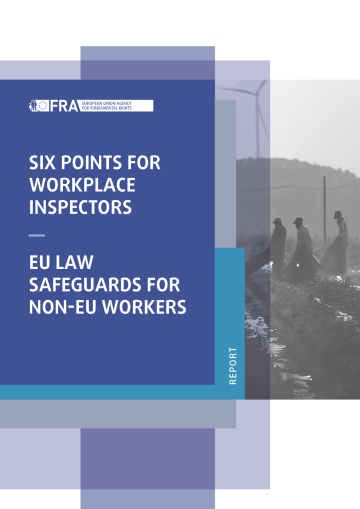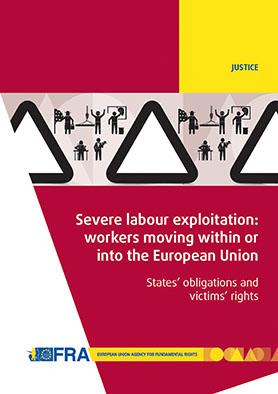- FRA (2021), Protecting migrants in an irregular situation from labour exploitation – Role of the Employers Sanctions Directive, Luxembourg, Publications Office of the European Union, 2021.
- FRA (2019), Protecting migrant workers from exploitation in the EU: workers’ perspectives, Luxembourg, Publications Office of the European Union, 2019.
- FRA (2018), Protecting migrant workers from exploitation in the EU: boosting workplace inspections, Luxembourg, Publications Office of the European Union, 2018.
- FRA (2018), Out of sight: migrant women exploited in domestic work, Vienna, 2018 .
- FRA (2015), Severe labour exploitation: workers moving within or into the European Union, Luxembourg, Publications Office of the European Union, 2015.






